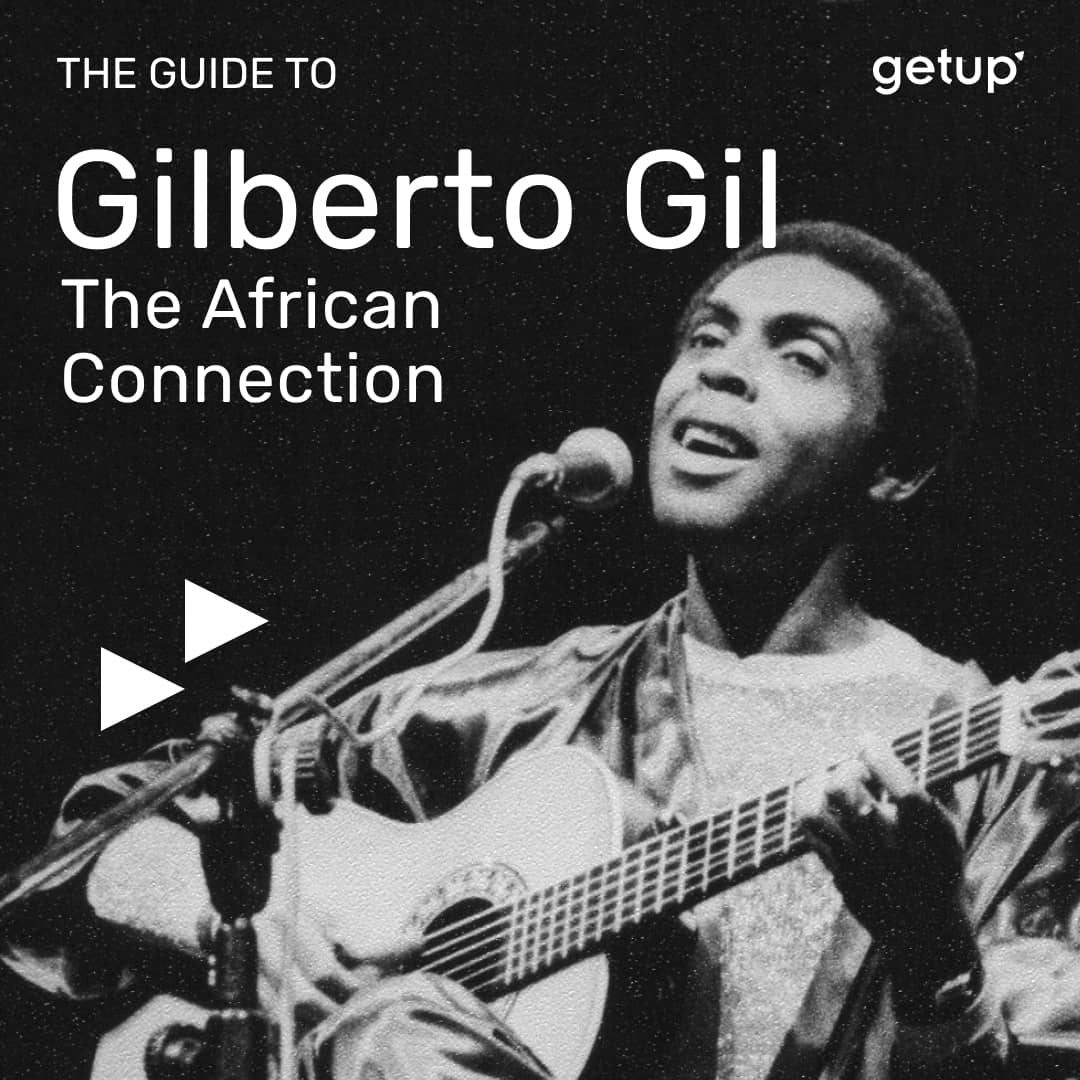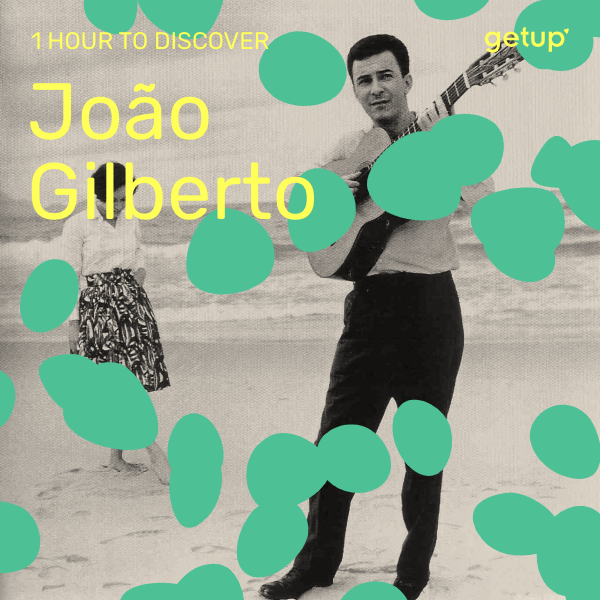On his 1968 eponymous album, the Bahian born Gilberto Gil introduced us to the berimbau (a typical capoeira instrument) on the track “Domingo No Parque”, and with it began his exploration of themes surrounding Blackness. Performed with the group Os Mutantes and arranged by Rogério Duprat, the song came second at the São Paulo Popular Song Festival. But it was while in exile in London that Gil became truly aware of the weight of debates surrounding race in the world; the Caribbean scene in Notting Hill was exploding and news was arriving of the North American civil rights movement and those of African liberation. Gil, with his afro and his Black Power-inspired clothes, was trying to understand what it meant to be Black in a society that denied Black people any historical and cultural specificity. One of his first acts on his return to Brazil in 1972 was to march with the African Filhos de Gandhy block – guardians of Salvador’s carnival and followers of the Candomblé religion.
Five years later Gil was invited to Festac in Lagos, and took African pop music in stride – high life, juju music and especially afrobeats. Fela’s work – both his music and his pan-African activism – had a major aesthetic, artistic and political influence on Gil. The discovery of a committed, modern, lively and powerful Africa gave Gil the desire to reevaluate his own African roots. It also caused him to explore the significance of African heritage in terms of Brazilian civilization, centred around two major territories: the farm and the favela. On his return from Nigeria, Gil recorded the album Refavela, which he conceived as a social critique and as a political instrument to serve Brazil’s Black communities. In 1983, Gil composed the soundtrack for the film Quilombo, which tells the story of Zumbi, a slave who fought for freedom in the 17th century. In it, he praises the vast mix of African heritages found in Brazil, making it symbolic of the country itself and highlighting how Indian, African and European cultural differences have all contributed to the creation of Brazilian culture.
The question of memory for Brazil’s Black children, and Black identity in general in Brazil, is at the heart of Gilberto Gil’s political commitments. In 1985, when his people were celebrating the end of the military regime, Gil wrote a fervent indictment of the apartheid system then in force in South Africa. His presence in the Lula government from 2003 to 2008 intensified Brazil’s economic cooperation with Africa, and, naturally, it was Gil who composed the official anthem of the third Dakar Festival of Black Art: “La Renaissance Africaine”, a key piece in his most recent repertoire. Though he wasn’t at the event in person, his spirit was, as the piece was reinterpreted for the documentary Viramundo, uma viagem musical com Gilberto Gil by young South African musicians of all races who form the Miagi Youth Orchestra.






.jpg)

